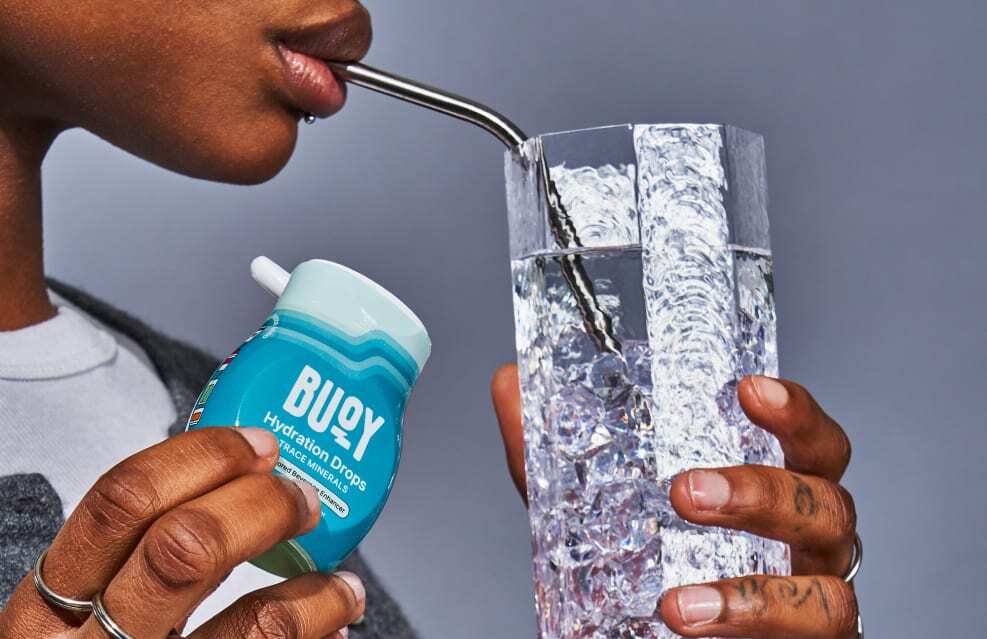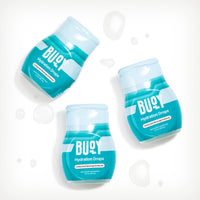Have you ever experienced a sudden bout of diarrhea and felt completely drained afterward? It's not just the frequent bathroom trips that leave you feeling exhausted; it's also the rapid loss of fluids and electrolytes that can lead to dehydration.
But wait, isn't diarrhea supposed to be a way for your body to get rid of harmful substances? While that's true, the connection between diarrhea and dehydration is more complex than you might think.
Staying hydrated is essential for maintaining overall health and proper digestive function. When diarrhea strikes, your body can quickly lose vital fluids and electrolytes, which need to be replenished to prevent dehydration. If left unchecked, dehydration can make you feel even worse and potentially lead to more serious health issues.
Essential Takeaways:
- Diarrhea can lead to rapid fluid and electrolyte loss, which can cause dehydration if not properly managed. Recognizing the signs and symptoms of dehydration, such as thirst, dry mouth, fatigue, and dark urine, is crucial for prompt treatment and prevention of complications.
- To maintain hydration during and after bouts of diarrhea, consider incorporating electrolyte and mineral drops into your routine. These drops can be easily added to your favorite beverages, providing a convenient and effective way to replenish lost fluids and electrolytes, aiding in your body's recovery process.
In this article, we'll take a closer look at the link between diarrhea and dehydration, exploring how they're connected and what you can do to maintain fluid balance during and after these unpleasant episodes. So, if you're ready to learn more about this important topic, let's dive in!
- The Role of Hydration in Digestive Health
- Understanding Diarrhea
- The Hydration-Digestion Connection
- Preventing Dehydration from Diarrhea Episodes
- Breaking the Cycle: Hydration Solutions from Buoy
The Role of Hydration in Digestive Health
Water and other fluids play an important role in maintaining a healthy digestive system. They help dissolve nutrients, making them more easily absorbed by the body, and aid in the production of digestive enzymes and juices that break down food.
Adequate hydration also helps keep the digestive tract lubricated, facilitating the smooth passage of food and waste products. This lubrication is essential for preventing constipation and ensuring regular bowel movements (1).
Hydration and Regular Bowel Movements
Proper hydration is crucial for maintaining regular bowel movements. When the body is well-hydrated, the colon absorbs the right amount of water, ensuring that stool remains soft and easy to pass.
Conversely, when the body is dehydrated, the colon may absorb too much water from the stool, leading to constipation and hard, dry stools that are difficult to pass. Insufficient fluid intake can contribute to this problem (1).
Hydration and Gut Health
Proper hydration also supports the health of the gut microbiome, the diverse community of beneficial bacteria that reside in the digestive tract. These bacteria play a crucial role in digestion, nutrient absorption, and immune function.
Drinking enough water helps to maintain the balance of these beneficial bacteria, promoting overall digestive health (2).
Understanding Diarrhea
Diarrhea is a common digestive issue characterized by loose, watery stools and frequent bowel movements. It occurs when the digestive system moves food and waste through the intestines too quickly, preventing the absorption of water and nutrients (3).
Common Diarrhea Symptoms
Common symptoms of diarrhea include:
- Loose, watery stools
- Abdominal cramps and pain
- Bloating and gas
- Nausea and vomiting
- Urgent need to have a bowel movement
These symptoms can range from mild to severe, depending on the underlying cause of diarrhea. While most cases of diarrhea resolve on their own within a few days, persistent or severe diarrhea can lead to dehydration and other complications, making it important to monitor symptoms and seek medical attention when necessary (3).
Causes of Diarrhea
Diarrhea can be caused by various factors, such as:
- Viral or Bacterial Infections: Like stomach flu and food poisoning.
- Food Intolerances or Allergies: Such as lactose intolerance and celiac disease.
- Inflammatory Bowel Diseases: Including Crohn's disease and ulcerative colitis.
- Certain Medications: Like antibiotics and antacids containing magnesium.
- Digestive Disorders: Such as irritable bowel syndrome and bile acid malabsorption.
Identifying the underlying cause of diarrhea is crucial for effective treatment and management. While some cases may resolve on their own with supportive care, such as staying hydrated and eating a balanced diet, others may require medical intervention (3).
If you experience persistent or severe diarrhea, it's essential to consult with a healthcare professional to determine the appropriate course of action.
Risk Factors for Diarrhea
Certain activities, conditions, or illnesses can increase the risk of developing diarrhea:
- Consuming Contaminated Food or Water: Exposure to bacteria, viruses, or parasites can lead to diarrhea.
- Traveling to Areas with Poor Sanitation: Travelers' diarrhea is common when visiting countries with inadequate water treatment and sanitation.
- Having a Weakened Immune System: Conditions that compromise the immune system, such as HIV/AIDS or undergoing chemotherapy, can make individuals more susceptible to infections that cause diarrhea.
- Experiencing High Levels of Stress or Anxiety: Psychological stress can disrupt the balance of gut bacteria and affect digestive function.
- Undergoing Surgery or Radiation Therapy: These treatments can cause temporary changes in bowel habits, leading to diarrhea.
- Taking Certain Medications: Antibiotics, antacids, and other medications can disrupt the balance of gut bacteria or alter digestive processes, resulting in diarrhea.
By understanding the causes and risk factors associated with diarrhea, individuals can take steps to prevent or manage this digestive issue more effectively. Maintaining proper hydration, practicing good hygiene, and making appropriate dietary changes can help alleviate symptoms and support overall digestive health (3).
The Hydration-Digestion Connection
Diarrhea can cause rapid fluid loss from the body. During a diarrhea episode, the digestive system is unable to absorb fluids and nutrients effectively, leading to increased fluid excretion.
If these fluids and electrolytes, such as sodium and potassium, are not replenished quickly, the body can become dehydrated (4,5).
Symptoms of Diarrhea-Related Dehydration
Signs and symptoms of dehydration related to diarrhea may include:
- Excessive thirst
- Dry mouth and lips
- Decreased urine output or dark-colored urine
- Fatigue and weakness
- Dizziness or lightheadedness
- Rapid heartbeat
- Headache
- Dry skin with reduced elasticity
If you experience any of these symptoms during or after a bout of diarrhea, it's essential to take action to replenish lost fluids and electrolytes. Failure to do so can lead to more severe dehydration, which can have serious health consequences (4).
Want to learn more? Get a comprehensive understanding of dehydration and how it might be affecting your health with this blog post: Chronic Dehydration Symptoms Explained.
Preventing Dehydration from Diarrhea Episodes
Maintaining proper hydration during and after bouts of diarrhea is crucial to prevent dehydration and support the body's recovery process. Here are some tips and strategies to help you stay hydrated:
-
Drink Clear Liquids: Focus on consuming clear, easily digestible liquids such as water, clear broths, and electrolyte-rich beverages like coconut water or sports drinks. These liquids help replenish lost fluids and electrolytes without putting additional strain on your digestive system.
-
Use an Electrolyte Supplement: During diarrhea episodes, your body loses essential electrolytes like sodium, potassium, and magnesium. To replenish these lost electrolytes and maintain proper hydration, consider adding Buoy's electrolyte and mineral drops to your drinks. These convenient drops provide a balanced blend of electrolytes and minerals to support your body's recovery process and prevent dehydration.
-
Sip Fluids Slowly and Regularly: Rather than drinking large amounts of fluids all at once, take small, frequent sips throughout the day. This approach allows your body to absorb the fluids more efficiently and reduces the risk of further irritating your digestive system.
-
Avoid Caffeine and Alcohol: Caffeinated beverages like coffee, tea, and soda, as well as alcoholic drinks, can have a diuretic effect, leading to increased fluid loss. It's best to avoid these beverages during and immediately after a diarrhea episode.
-
Gradually Reintroduce Solid Foods: As your symptoms begin to improve, slowly reintroduce easily digestible solid foods into your diet. Start with bland, low-fiber foods like bananas, rice, applesauce, and toast (the BRAT diet) before progressively adding other foods back into your meals.
- Consider Probiotic Supplements: Probiotics are beneficial bacteria that help maintain a healthy gut microbiome. Some studies suggest that taking probiotic supplements during and after a diarrhea episode may help restore the balance of gut bacteria and support recovery.
Remember, if your diarrhea persists for more than a few days, is accompanied by severe symptoms like high fever or bloody stools, or if you experience signs of severe dehydration, it's essential to seek medical attention promptly (4).
By following these tips and strategies, you can help maintain proper hydration during and after diarrhea episodes, supporting your body's recovery and preventing complications associated with dehydration.
Learn more about how to treat and prevent dehydration in our guide, How to Fix Dehydration Quickly: Role of Hydration Drops.
Breaking the Cycle: Hydration Solutions from Buoy
Break the challenging cycle of dehydration and diarrhea with Buoy Hydration Drops, an effective solution tailored to replenish your body’s essential needs. These drops are a blend of liquid electrolytes and 87 trace minerals, designed to replenish your body's needs seamlessly.
Why Choose Buoy?
Enhance your hydration with Buoy’s electrolyte and mineral drops. Here’s what sets Buoy apart from other hydration solutions:
- Liquid Electrolytes and Trace Minerals: Designed to reflect your body’s own electrolytes, our drops enhance hydration more effectively.
- Real Sea Salt: We source only the highest quality sea salt, rich in vital trace minerals often missing from regular diets.
- Unflavored and Unsweetened: Buoy keeps your beverage tasting just as you like it—purposely unflavored and free from sugars and sweeteners, making it the perfect choice if you’re monitoring your sugar intake or watching calories.
- Vegan and Non-GMO: Committed to sustainability and inclusivity, Buoy ensures that everyone can access optimal hydration.
Buoy's commitment to quality ingredients and effective hydration support makes it the top choice for maintaining hydration and electrolyte balance, which is especially important when you’re suffering from digestive issues like diarrhea.
Take the Next Step Toward Balanced Hydration
Make staying hydrated simple with Buoy Hydration Drops. With just a squeeze, turn any drink into a source of essential electrolytes and minerals, perfect for supporting your body's needs, especially if you're prone to dehydration and its side effects.
Start feeling your best today. Experience the transformative power of proper hydration with Buoy. Shop our products now and give your body the nourishment and care it deserves.

References:
- Healthline. (Updated April 12, 2023). Why Is Water Important? 16 Reasons to Drink Up. Retrieved from https://www.healthline.com/health/food-nutrition/why-is-water-important
- Vanhaecke T, Bretin O, Poirel M, Tap J. Drinking Water Source and Intake Are Associated with Distinct Gut Microbiota Signatures in US and UK Populations. J Nutr. 2022 Jan 11;152(1):171-182. Retrieved from https://www.sciencedirect.com/science/article/pii/S0022316622005168?via%3Dihub
- Healthline. (Updated May 26, 2023). Diarrhea: Causes, Symptoms, and Treatments. Retrieved from https://www.healthline.com/health/diarrhea
- Healthline. (2022). How to Prevent Dehydration from Diarrhea. Retrieved from https://www.healthline.com/health/diarrhea/dehydration-and-diarrhea
- Mayo Clinic. (2021). Dehydration. Retrieved from https://www.mayoclinic.org/diseases-conditions/dehydration/symptoms-causes/syc-20354086











